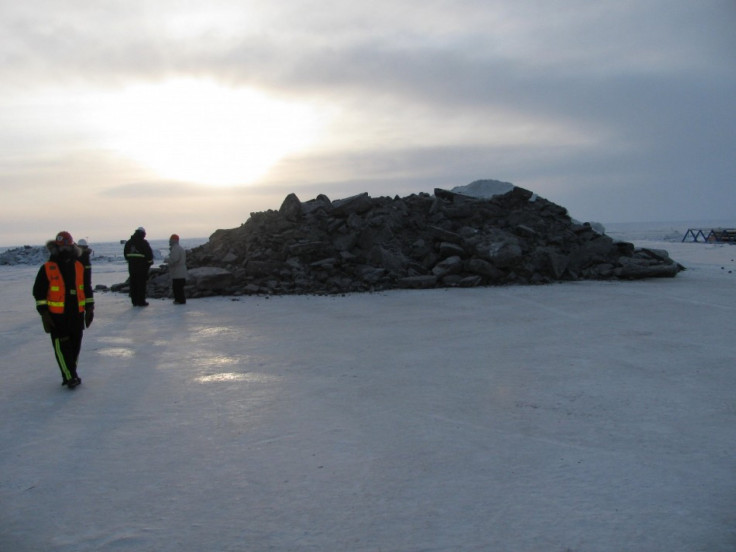Repsol Crews Battling Alaskan Well Blowout After Two Weeks

Repsol, Spain's No. 1 energy company, which started deepwater oil exploration off Cuba this month, is still battling a well blowout from almost two weeks ago in Alaska's North Slope.The blowout may cast doubt on some of its major oil projects off the coasts of Venezuela and Brazil.
Drilling mud is a water-and-lubricant mixture that cuts down on friction. The fluid also helps move shavings of earth back to the surface and away from the drill so as to prevent the hole from filling back up. As of Saturday, the well was still not under control, Alaska's Department of Environmental Conservation reported.
Response crews continue 24-hour operations to steam thaw and remove drilling mud from the drilling rig in order to access the essential drilling rig components needed for the well-kill operation, the department said.
As of Feb. 25. the department reported an additional 7,308 gallons of drilling mud and water was shipped off the drilling site, bringing the total volume of liquids discharged from the well to 43,176 gallons or 1,028 barrels.
The department stressed that much of the liquid is water condensate from steam used to thaw out the frozen drilling mud from the Alaskan tundra. In all, 125 cubic yards of solid waste was shipped off the drilling site.
The North Slope well encountered a pocket of natural gas on Feb. 15 that promptly forced drilling mud to erupt out of the well bore. The well is located near the Colville River, 625 miles from Anchorage.
Repsol's American Depositary Receipts were flat in Monday trading, down a penny to $27.76.
© Copyright IBTimes 2024. All rights reserved.




















